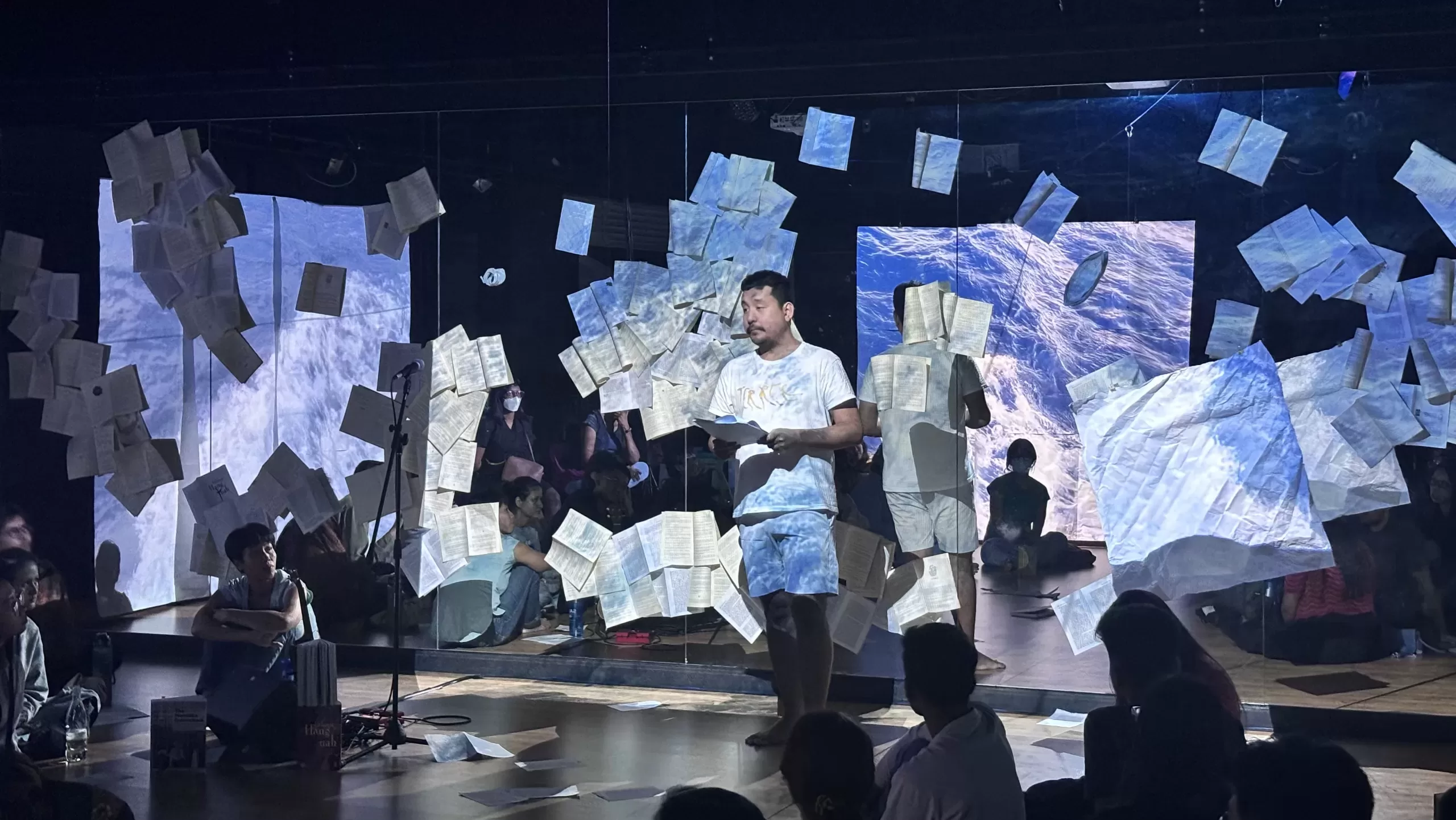A Review of Fragments of Tuah
I was lucky to catch the opening night of Fragments of Tuah directed by Mark Teh on my short visit to Malaysia. Drawn by the meaning and story of the Malaysian cultural icon Hang Tuah, I was not left disappointed by the play in any way as it exposed me to a type of theatre I hadn’t seen before.
Within the fragmented landscape of Hang Tuah’s narrative, the play positions itself as musical documentary theater which reviews all of the pieces of the puzzle to make the audience reflect on the malleable nature of emblematic cultural figures in the creation of national power and identity.
The plot of the play itself is a personal reflection on the research process carried out by Mark Teh and Faiq Syazwan Kuhiri. Faiq plays himself in the role of the narrator and he is accompanied by his former bandmates OJ Law and Shariman Shuhaime. Together, they dynamize the research presentations with electric chemistry between the piano, the guitar and Faiq’s voice to engage the audience while letting the content shine as the centerpiece of the play.
The simplistic but no less meaningful staging and costumes place Hang Tuah at the center of everything. Books and pages of Hang Tuah’s story make up everything on stage, from the projector screen to the decorations to the costuming. This reinforces the notion that Hang Tuah’s narrative is manifold, fragmented and spread out, but ubiquitous in Malaysia nonetheless.
The use of projectors and screens is sharply done to support Faiq’s performance. The materials shown on screen bring the meticulous research process to life. We are being guided through many centuries and countries with Hang Tuah’s fragments acting as a common thread. On one hand, interviews, photographs, and excerpts appear to illustrate the archival journey. On the other hand, the projectors double as a screen for the audience to engage with the raw and less curated form of cultural expression through Faiq’s vlog-esque interactions.
The subjectivity of the narrator can appear at odds with the choice of grounding the play in factual analysis. However, I appreciated this tension as it also reflects the central question of whether a story can ever be seen as factual since it will always be shaped by the way it is told and which details it puts forth.
Throughout the play, Faiq brings tremendous energy with emotionally powerful opening and closing acts that gave me goosebumps, beautifully complementing the source-driven deep-dive into Hang Tuah’s told and untold stories.
The final moment of the play sumptuously captures the essence of the questions surrounding Hang Tuah’s character. As the projector screens come down, they cover a book about Hang Tuah which was left in the center. The collage of pages covering the book appears as the shape of a body laying on the ground, symbolizing how narratives we create can become real and in turn shape our own sense of identity.
Overall, Fragments of Tuah broadened my view of what theatrical spaces can be, challenging the need for “dramatic” stories by crafting a story of stories that engages through excellent staging and captivating musical acts which perfectly round-off the careful research done behind the scenes. As a more thought-provoking and source-driven play, I recommend it to anyone interested in Malaysia, mythmaking, cultural-historical analyses, or theater enthusiasts who wish to see something different that is very well executed.
Richard Bennet Morales is a multicultural educationist and theatre enthusiast engaging in dramaturgy, acting, and playwriting for 8 years across France, Spain and the USA. He is currently working as a researcher in Bangladesh’s garment industry called The Simon Project.
Image Credit: Five Arts Centre


Leave a Reply